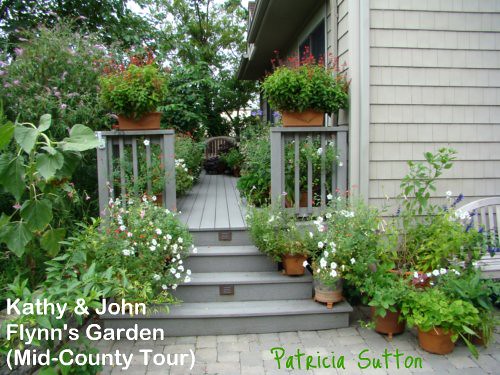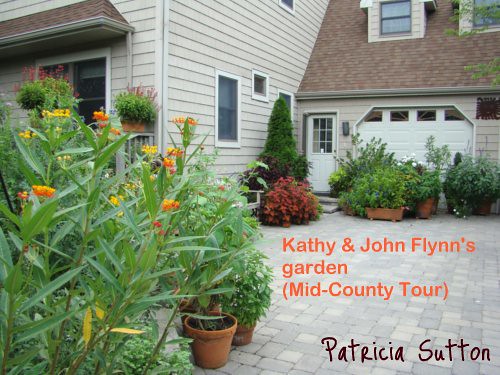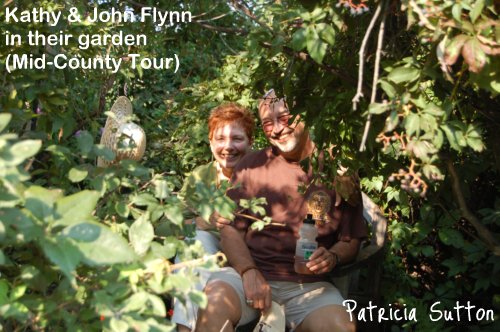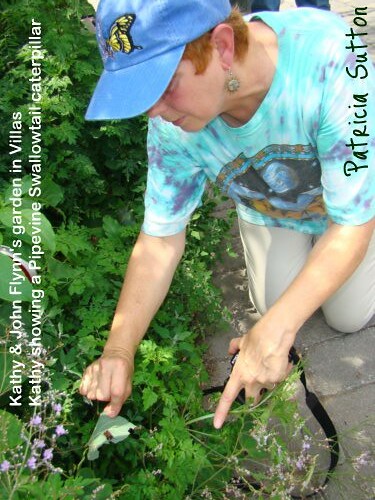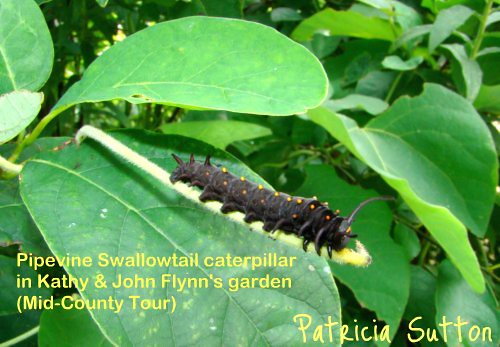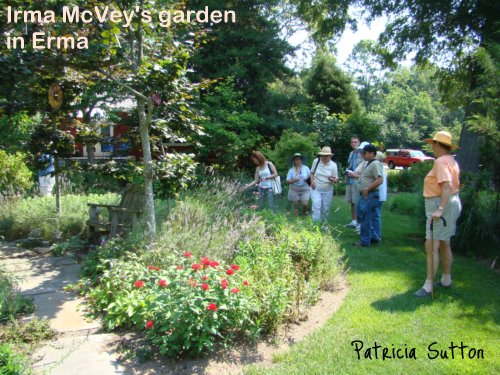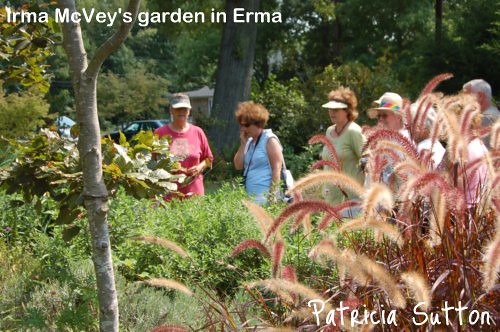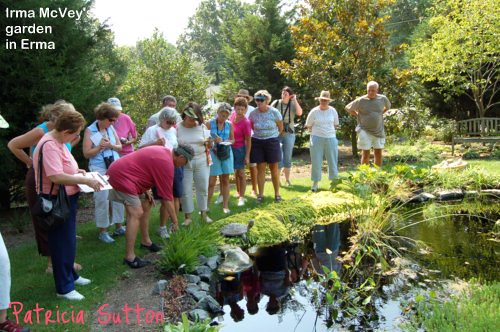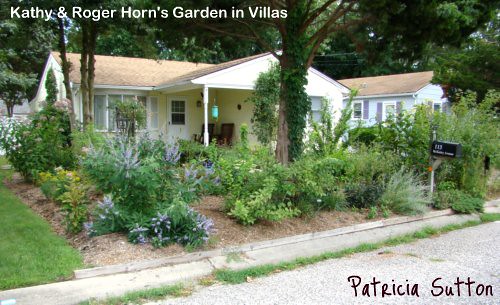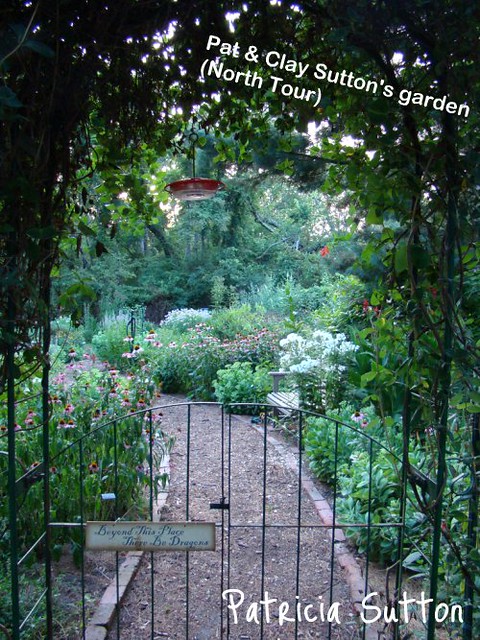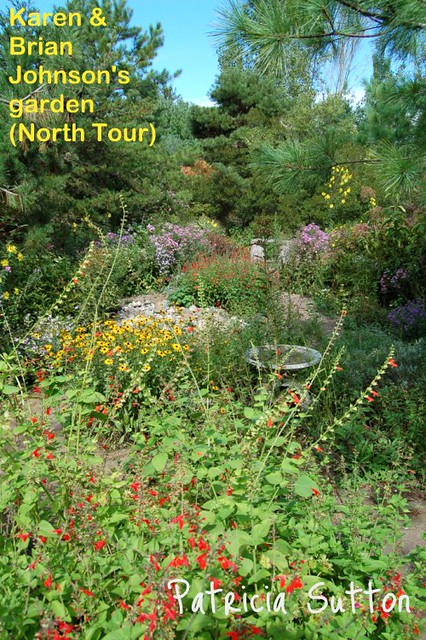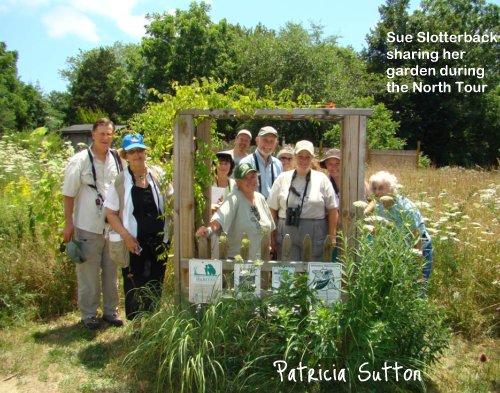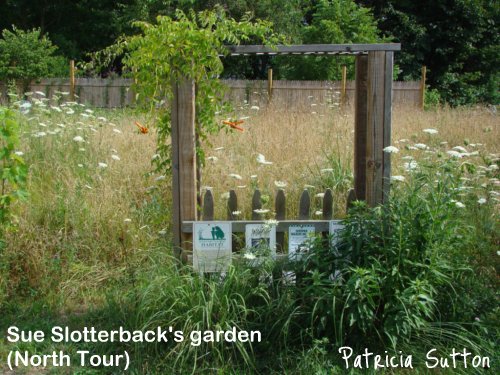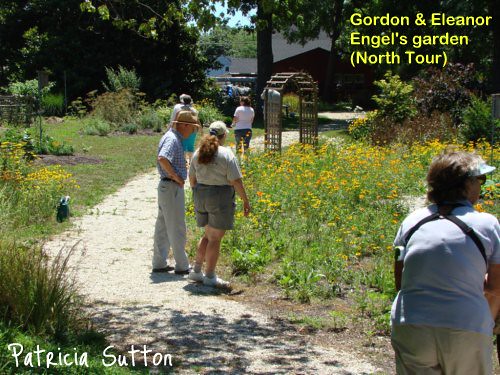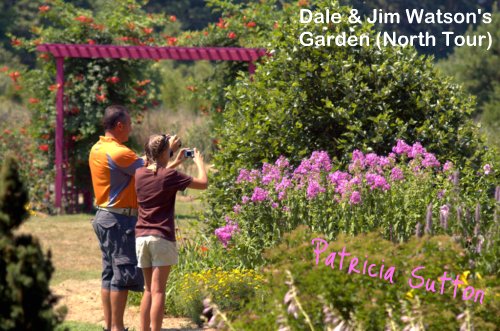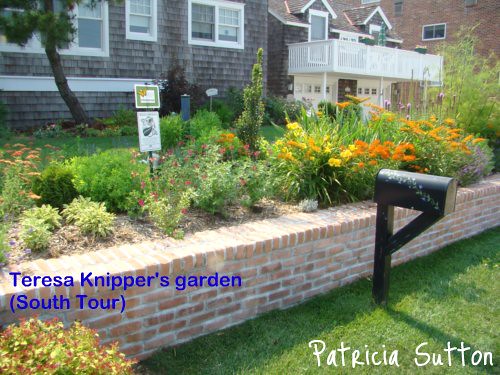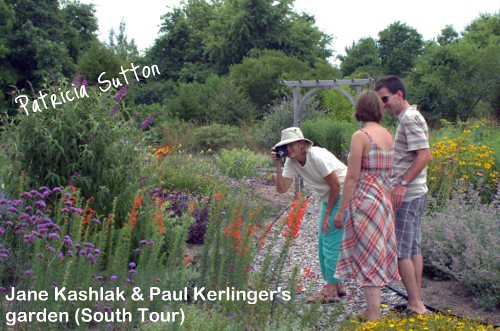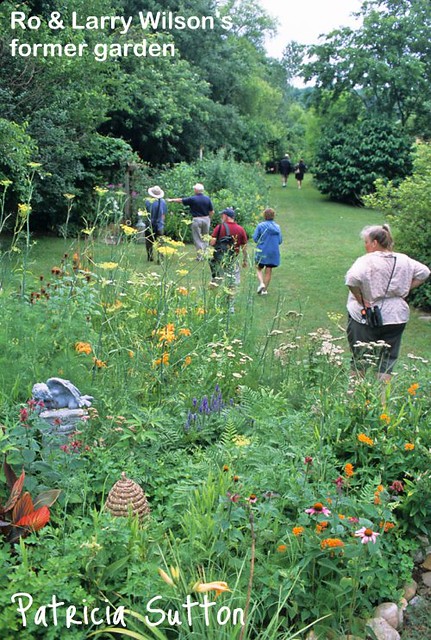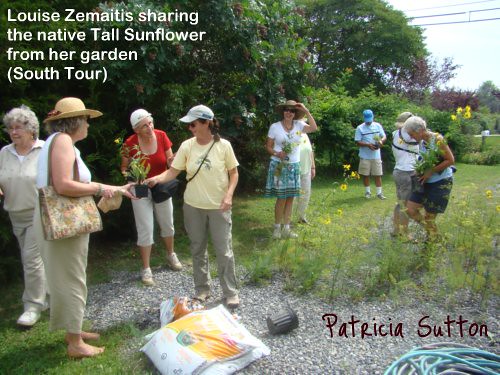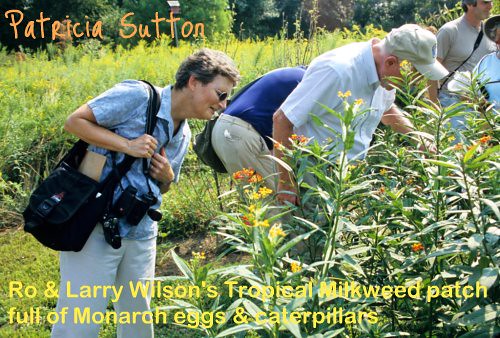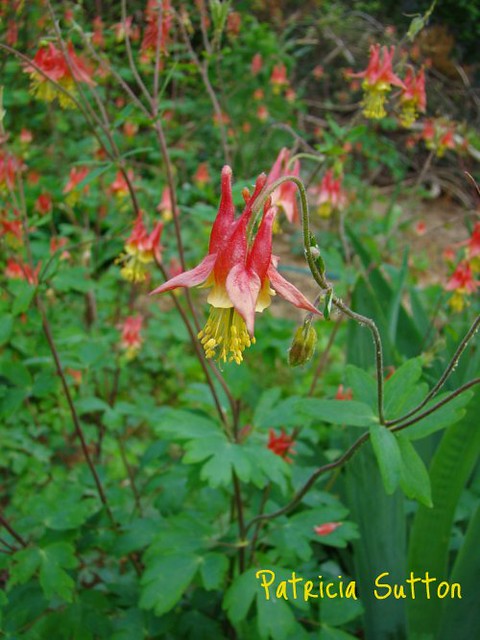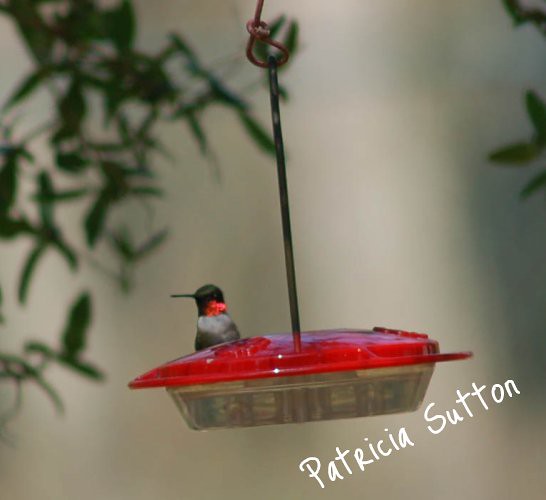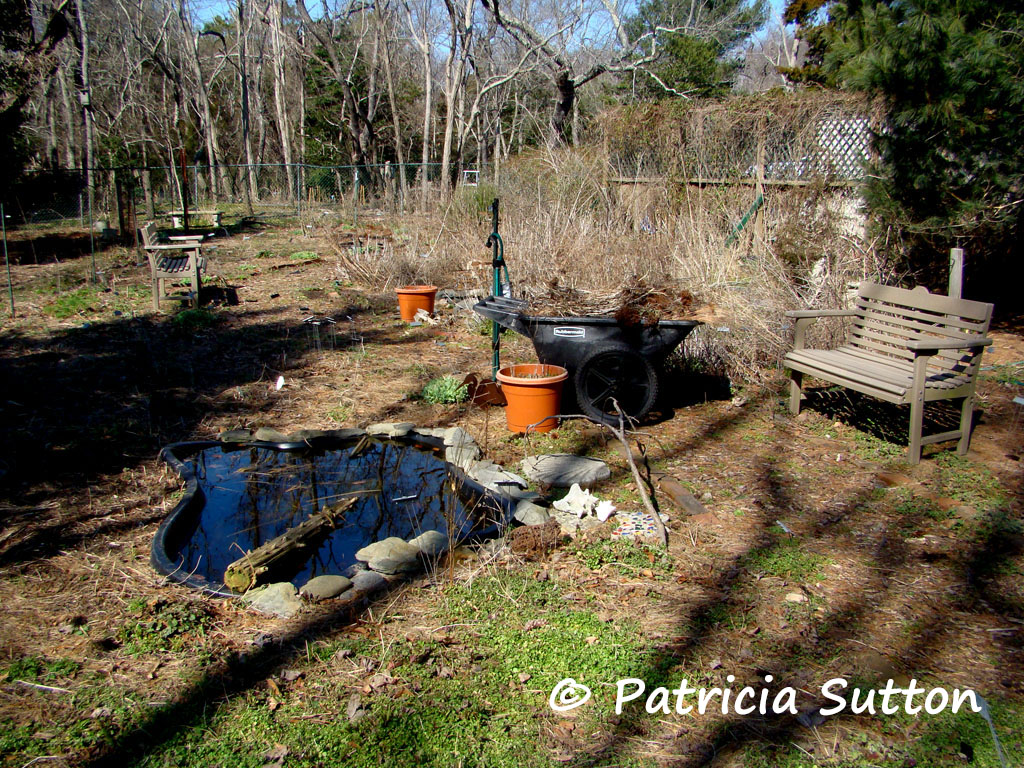 WHEN and HOW to clean up the winter wildlife garden is a question I am often asked. My advice:
WHEN and HOW to clean up the winter wildlife garden is a question I am often asked. My advice:
- Wait until you have a stretch of warm days (not a warm day here and there)
- Don’t tackle this task with a rake, but instead break off stems and seed heads, looking for life on them as you go (butterfly chrysalis, moth cocoon, Carolina Mantis egg case, etc.). If stems do not break off easily, cut them at the base, otherwise you may pull out the roots and lose these gem pollinator plants (like Anise Hyssop, Verbena bonariensis, and a few others). Collect these broken off stems and seed heads and transport them to a border of your property or your woods. Scatter them loosely, single-layer so overwintering insects can still complete their life cycle (because, believe me, there is hidden life you will not “spot” on those broken off stems and seed heads).
- Do not remove your old mulch but instead leave it in place, especially if it is salt hay or another organic mulch like leaves, grass clippings, or pine stray / pine needles, since these organic mulches will break down into soil
- wait to put new organic mulch down for a while until more and more of your perennials come up and you can see where they are.
Spring cleaning, if done with wildlife in mind, is a slow process. On hands and knees each section is tackled slowly enough to spot garden treasures (overwintering chrysalises on stems, partially grown caterpillars in curled up leaves, microscopic eggs on plant material). Each spring many treasures are found along the way: spider egg sacks (some intact, others that had been discovered by hungry birds and emptied sometime over the winter), Carolina Mantid egg cases, and plant stems that have been nibbled to the core (proof that the garden’s dormant insects aided wintering birds).
Learn more about how and when to clean up your wildlife garden by reading two columns I wrote:
Spring Cleanup in the Perennial Garden,
Don’t Overdo It, PART ONE
by Pat Sutton
Originally published on the website Native Plants and Wildlife Gardens (sadly a website that no longer exists). I very much am hoping to update and rewrite this article to share here.
Spring Cleanup in the Perennial Garden,
Part TWO
by Pat Sutton
Originally published on the website Native Plants and Wildlife Gardens (sadly a website that no longer exists). I very much am hoping to update and rewrite this article to share here.
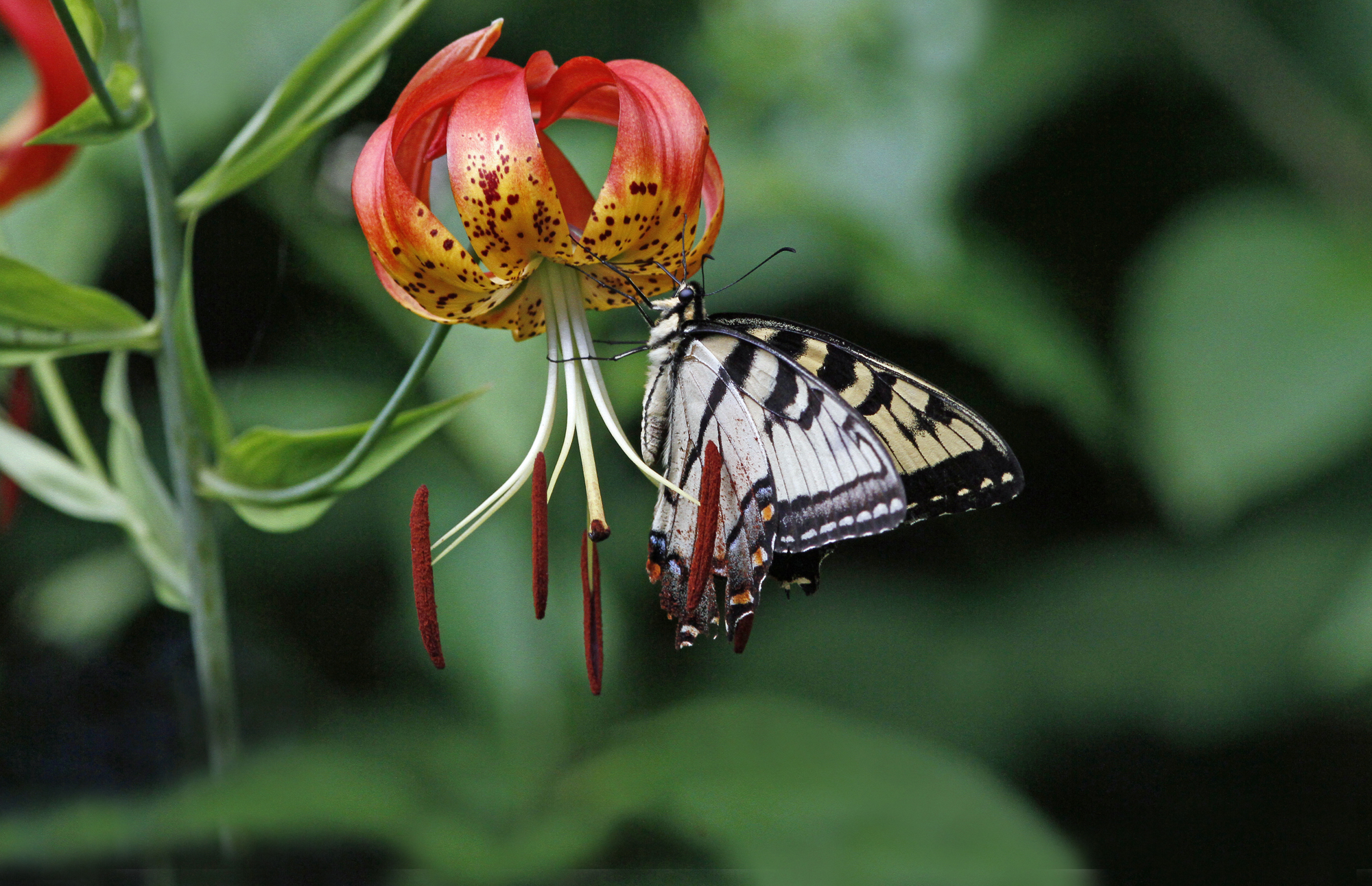
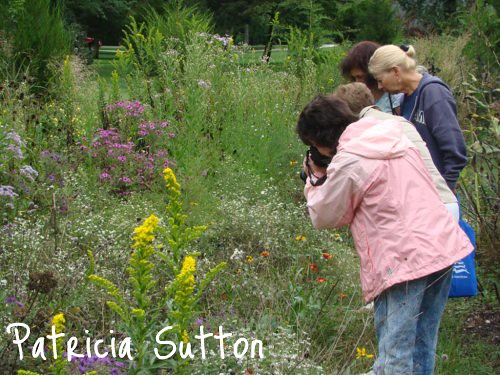 This is the 21st year I’ve been leading these tours of private backyard wildlife gardens. And they just keep getting yummier and yummier!
This is the 21st year I’ve been leading these tours of private backyard wildlife gardens. And they just keep getting yummier and yummier!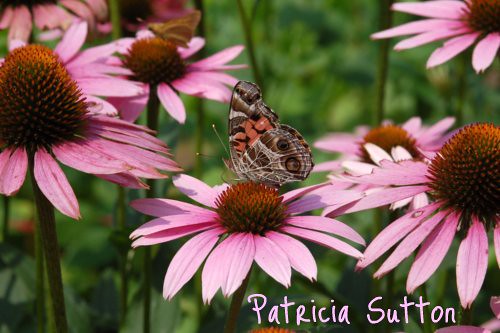 More butterfly and hummingbird gardens are tucked into Cape May County than probably anywhere else in the country. Mid-July is the time of peak butterfly diversity and numbers. Gardens look completely different from one month to the next (so seriously consider all 9 tours). Learn the magic combination of native nectar plants and caterpillar plants that makes a garden especially attractive to butterflies. Design ideas and new wildlife plants will be showcased while tour participants are entertained by a blizzard of butterflies and hummingbirds.
More butterfly and hummingbird gardens are tucked into Cape May County than probably anywhere else in the country. Mid-July is the time of peak butterfly diversity and numbers. Gardens look completely different from one month to the next (so seriously consider all 9 tours). Learn the magic combination of native nectar plants and caterpillar plants that makes a garden especially attractive to butterflies. Design ideas and new wildlife plants will be showcased while tour participants are entertained by a blizzard of butterflies and hummingbirds.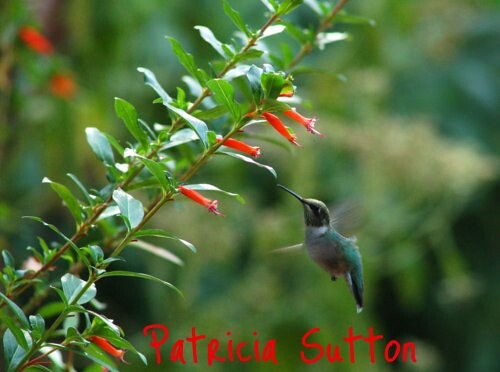
 At the peak of Cape May County’s world-famous fall Monarch migration, tour diverse gardens that have hosted Monarchs since May. Each features native nectar plants and as many as five different kinds of milkweed (used by Monarchs for egg laying to create the next generation). Expect clouds of Monarchs and other butterflies, Monarch eggs, caterpillars, and maybe even a chrysalis. The complex Monarch migration will be both explained and enjoyed.
At the peak of Cape May County’s world-famous fall Monarch migration, tour diverse gardens that have hosted Monarchs since May. Each features native nectar plants and as many as five different kinds of milkweed (used by Monarchs for egg laying to create the next generation). Expect clouds of Monarchs and other butterflies, Monarch eggs, caterpillars, and maybe even a chrysalis. The complex Monarch migration will be both explained and enjoyed.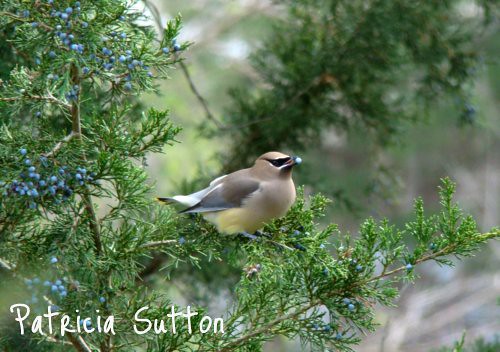 In southern New Jersey my favorite evergreen is Red Cedar, Juniperus virginiana, for about a zillion reasons. I’ve watched 32 different species of birds feed on the fruits, including big flocks of Cedar Waxwings (so named because they favor Red Cedar fruits).
In southern New Jersey my favorite evergreen is Red Cedar, Juniperus virginiana, for about a zillion reasons. I’ve watched 32 different species of birds feed on the fruits, including big flocks of Cedar Waxwings (so named because they favor Red Cedar fruits).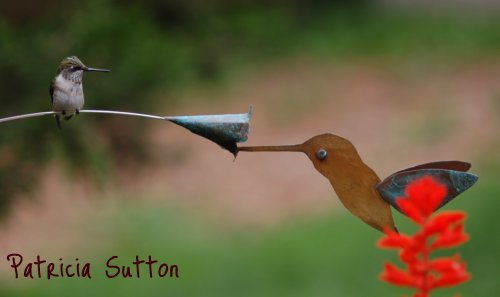 Hi Gang,
Hi Gang,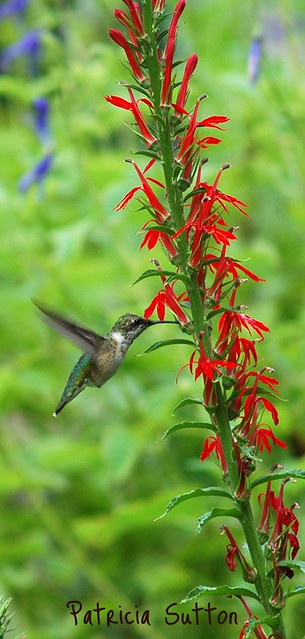
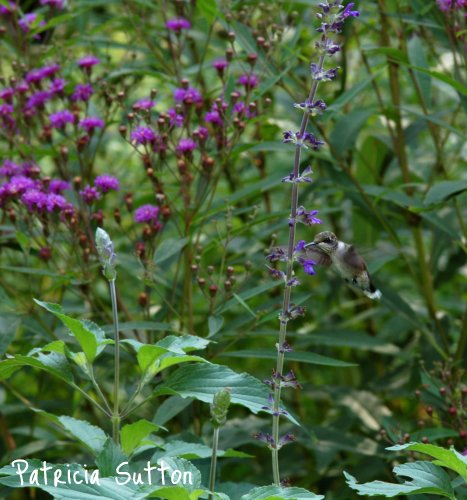
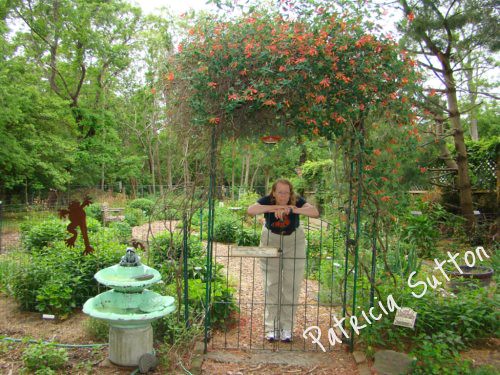 Hi Gardening Friends,
Hi Gardening Friends,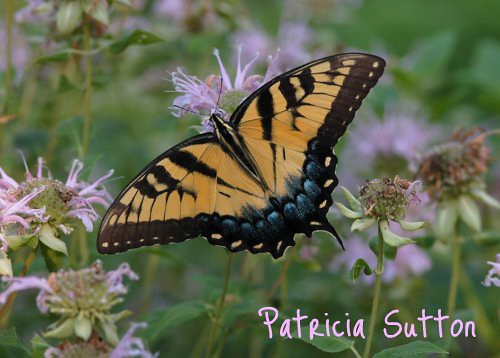 More butterfly and hummingbird gardens are tucked into Cape May County than probably anywhere else in the country. Mid-July is the time of peak butterfly diversity and numbers. Gardens look completely different from one month to the next (so seriously consider all 9 tours). Learn the magic combination of native nectar plants and caterpillar plants that makes a garden especially attractive to butterflies. Design ideas and new wildlife plants will be showcased while tour participants are entertained by a blizzard of butterflies and hummingbirds.
More butterfly and hummingbird gardens are tucked into Cape May County than probably anywhere else in the country. Mid-July is the time of peak butterfly diversity and numbers. Gardens look completely different from one month to the next (so seriously consider all 9 tours). Learn the magic combination of native nectar plants and caterpillar plants that makes a garden especially attractive to butterflies. Design ideas and new wildlife plants will be showcased while tour participants are entertained by a blizzard of butterflies and hummingbirds.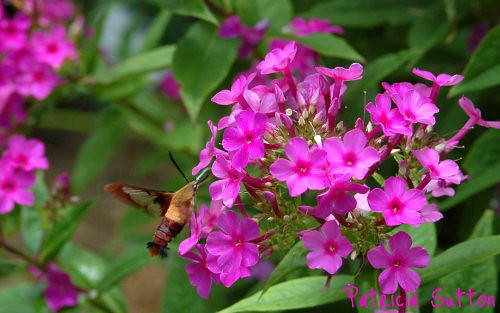 At the peak of Ruby-throated Hummingbird migration, we’ll savor an array of diverse gardens that have hosted nesting hummingbirds since May and are now drawing in dozens of migrants. Native nectar plants, healthy insect populations, water sources, and adequate cover are key elements of each garden.
At the peak of Ruby-throated Hummingbird migration, we’ll savor an array of diverse gardens that have hosted nesting hummingbirds since May and are now drawing in dozens of migrants. Native nectar plants, healthy insect populations, water sources, and adequate cover are key elements of each garden.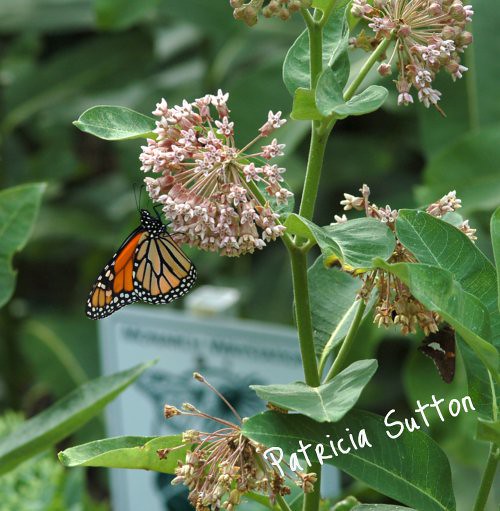 At the peak of Cape May County’s world-famous fall Monarch migration, tour diverse gardens that have hosted Monarchs since May. Each features native nectar plants and as many as five different kinds of milkweed (used by Monarchs for egg laying to create the next generation). Expect clouds of Monarchs and other butterflies, Monarch eggs, caterpillars, and maybe even a chrysalis. The complex Monarch migration will be both explained and enjoyed.
At the peak of Cape May County’s world-famous fall Monarch migration, tour diverse gardens that have hosted Monarchs since May. Each features native nectar plants and as many as five different kinds of milkweed (used by Monarchs for egg laying to create the next generation). Expect clouds of Monarchs and other butterflies, Monarch eggs, caterpillars, and maybe even a chrysalis. The complex Monarch migration will be both explained and enjoyed.